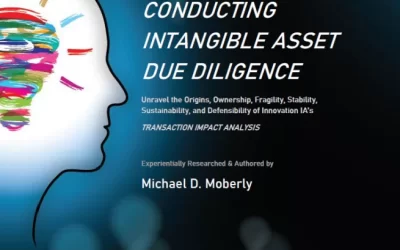Michael D. Moberly June 7, 2012
At the outset, let me say that the intent here is certainly not to cast dispersion on, or otherwise suggest the state of being unemployed or under-employed necessarily renders one more receptive to infringing proprietary knowledge acquired from a previous position, as leverage to secure new employment, market themselves as a specialized sector consultant, or start a new enterprise.
But, as we all have come to know all-to-well, the extended economic recession we’re experiencing and its various and often devastating ‘trickle down after shocks’ has placed growing percentages of workers and families at risk.
One well-understood reality, regardless of whether its influenced by this current recession or not, is that large scale layoffs, terminations, and the sheer unavailability of gainful employment prospects across all sectors, irrespective of whether one received a severance package, advance notice, unemployment benefits, or opportunity for ‘call back’ can, and usually will produce disgruntled and justifiably worried employees coupled with an elevated sense of (company, employer) disloyalty.
Collectively, we know through multiple objective and rigorous research studies, these factors can manifest themselves as a greater propensity (proclivity, receptivity) for a (former) employee to engage in illegal and/or unethical acts, e.g., theft, misappropriation, and/or infringement of proprietary information, intellectual property and other intangible assets.
Such attitudes and the adverse behaviors they can spawn are largely manifested as uncertainty that such dire economic and employment circumstances produce, particularly as one’s financial future and solvency become increasingly and indeterminately at risk.
In these circumstances exit interviews should obviously be ratcheted up to, among other things, emphasize the (legally binding) contractual components of employee non-disclosure confidentiality, and non-compete agreements (the latter in jurisdictions where they’re enforceable). This especially important for employees who have had access to sensitive-proprietary information and other forms of intangible assets.
The recession has also prompted countless companies to ’look to the proverbial low hanging fruit’ as targets for budget reductions which we know has substantially curtailed if not eliminate countless security and risk management programs and initiatives.
Translated this means fewer information (intangible asset) audits and less direct oversight and management of information-based intangible assets which includes intellectual property, proprietary and sensitive information, competitive advantage driving business processes and methods, as well as brand, reputation, and goodwill, etc.
But, collectively, these (intangible) assets conservatively comprise, for most companies, 65+% of their value, sources of revenue, and ‘building blocks’ for growth, expansion, and competitive advantage.
Too, we see many companies reallocating (re-distributing) their security resources or literally dismantling their security departments causing decentralization of security and asset protection responsibilities. Routinely then, these responsibilities are being delegated – entrusted to untrained and inexperienced personnel and/or business units. For the most part, they are unaccustomed to asset protection and security which, practically speaking means inconsistent interpretation, assessment, and treatment of intangible asset risk thresholds.
We can also presume with considerable certainty, that during an economic downturn, there will be an elevated presence and even more aggressive and predatorial tactics emanating from global competitive/business intelligence operations, information brokers, and various state sponsored entities and actors that will specifically target ’disgruntled employees’. In most instances, the objective of course is to elicit proprietary information, knowhow, and other forms of value laden intangible assets that can deliver new/additional sources of revenue and/or competitive advantage to another (end) user.
Similarly, we can presume these circumstances may well prompt a percentage of already disgruntled and disheartened employees to initiate contact with competitors or other adversaries to leverage or otherwise offer any specialized knowledge acquired during a previous employment for (a.) cash payment, or (b.) in exchange for employment with a competitor, or (c.) to start their own company.
A collective bottom line to all of this is that some company’s appear to have positioned themselves, as perhaps an unfortunate choice or reaction to the recession, to accept increasingly higher risk thresholds regarding their primary sources of value, revenue generation, and strategic (intangible asset) capability. The question, or perhaps more appropriately, the challenge for information – intangible asset protection professionals is how much company value, reputation, image, goodwill, and IP, etc., will be eroded, de-valued, undermined, or outright lost in the interim?
To me, this is hardly a sustainable position!



